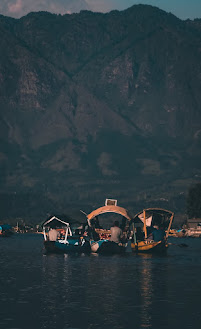EXODUS OF KASHMIR'S PANDITS (B.15)
Hello Everyone, The word exodus means "Mass departure of people from one destination to other". It can be either by the willingness of population or by forceful act by one community on others. There has been an infinite number of cases where one community is being tortured and persecuted on the basis of religion and beliefs. For example (Jews of Germany,)(Hindu, Sikh and Christian of Pakistan, Afghanistan and Bangladesh), (Zoroastrians of Iran), ( Uyghurs Muslims of China). In these incidents, most of the communities which I mentioned above are minorities of their respective countries. Today's point of Discussion is Exodus of Kashmiri Pandits and Sikhs. In India, around 80% of the population is following Hinduism but when we talk about Kashmir and especially Kashmir valley Hindus are in minority and most of the Hindus are Pandits i.e, they are called Kashmiri pandit. They were forced to live their houses, lands, properties fr...




